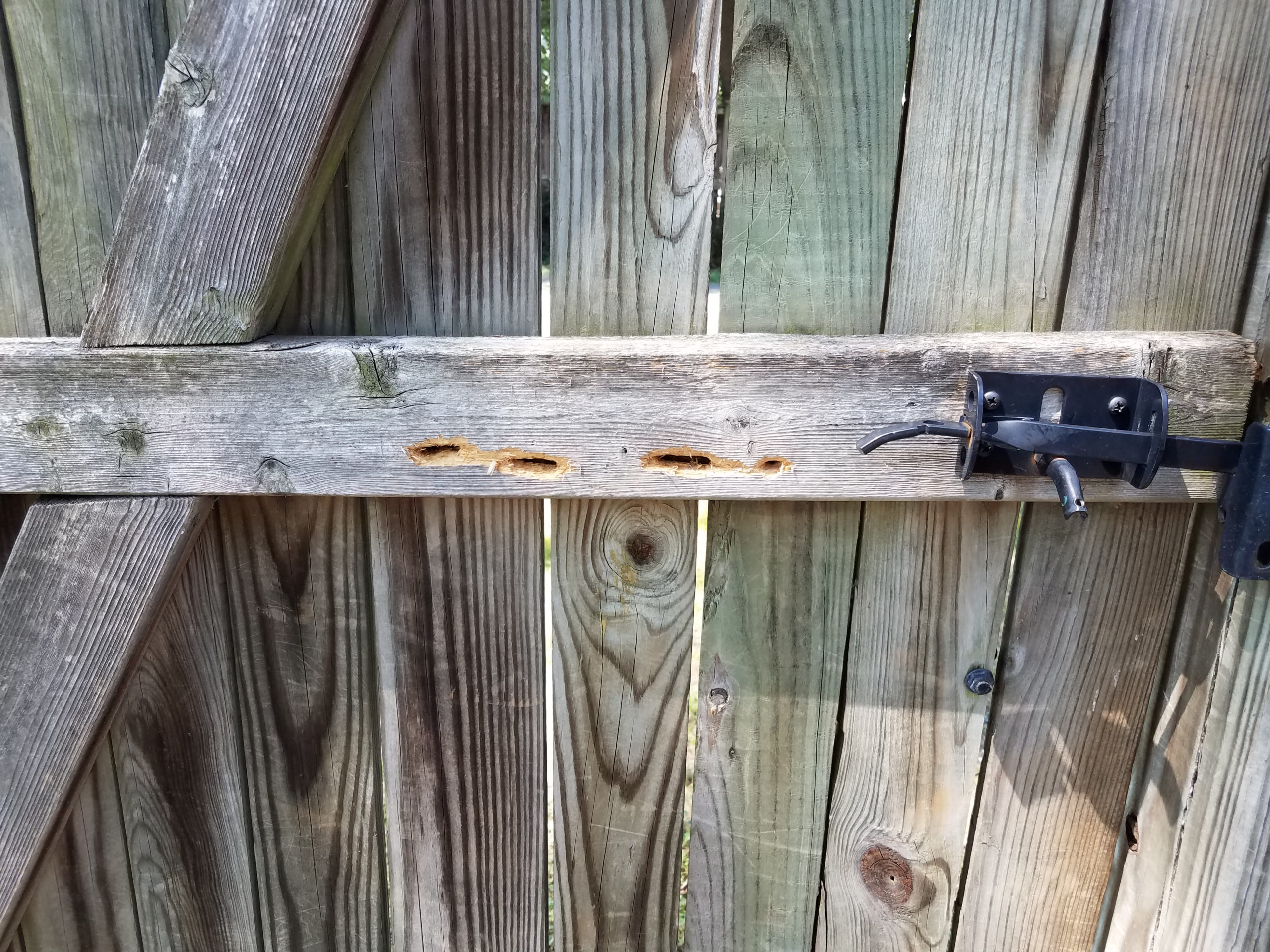Carpenter bees are native pollinators in Southern Maryland and Northern Virginia. While they look a lot like your typical bumblebee, they’re only out and about in spring and summer and they’re solitary nesters.
We’re often asked if carpenter bees are destructive, and honestly, the answer is not black and white–or should we say, black and yellow!
One thing to keep in mind is that we’re losing important pollinators on a global scale. That means from your Mid-Atlantic backyard to countries around the world, it’s important that we nurture any pollinating species that buzz around.
Let’s take a deeper look at the carpenter bee and whether or not they’re destructive.
Are Carpenter Bees Harmful to People?
It’s safe to say that many of us have an adverse reaction to pests that fly around our heads and bear those menacing black and yellow stripes. After all, a ton of insects with those same colors and flight patterns have a tendency to sting without warning!
However, carpenter bees aren’t particularly harmful to humans. If a carpenter bee dive-bombs you as you walk through your yard, all you need to do is move away from the area. This is more than likely a male carpenter bee warning you that you’re too close for comfort–and males don’t have stingers!
Female carpenter bees do have stingers but they’re not inclined to use them often. First and foremost, their stingers are designed to lay eggs. That being said, female carpenter bees can sting more than once, although they tend to sting only when handled by human hands.
Are Carpenter Bees Harmful to Property?
True to their colloquial name, carpenter bees do enjoy carving out some nesting space in wood. Female carpenter bees chew circular holes into wood structures that are roughly the size of their body. From there, they will chew channels along the wood grain that are 4 to 6 inches deep, where they will lay their eggs and store food for their hatchlings.
More often than not, these tunnels are not big enough or extensive enough to cause any major damage to your home, deck, or other wooden structures on your property. As we mentioned earlier, carpenter bees are solitary. They won’t swarm and chew up your property the way that termites will.
That being said, older or more fragile structures may be at risk if a carpenter bee decides to call it her home. If you’re concerned about any carpenter bees living on your property, call in a professional pest control company. It’s important to keep these pollinators alive and well even if they need to be relocated.
Carpenter Bee Removal in Southern Maryland and Northern Virginia
If you live in Southern Maryland or Northern Virginia and you’ve noticed that some nesting carpenter bees are causing trouble on your property, we’re here to help.
Planet Friendly Pest Control provides eco-friendly solutions to your pesty problems. Don’t drive yourself crazy looking for natural DIY pest control methods! Instead, contact us to take care of the problem for you.
NEED HELP?
If you live in Southern Maryland, or Northern Virginia
FIND YOUR SOLUTION HERE
People, Pet & Pollinator Safe! Pest control for people who care.
